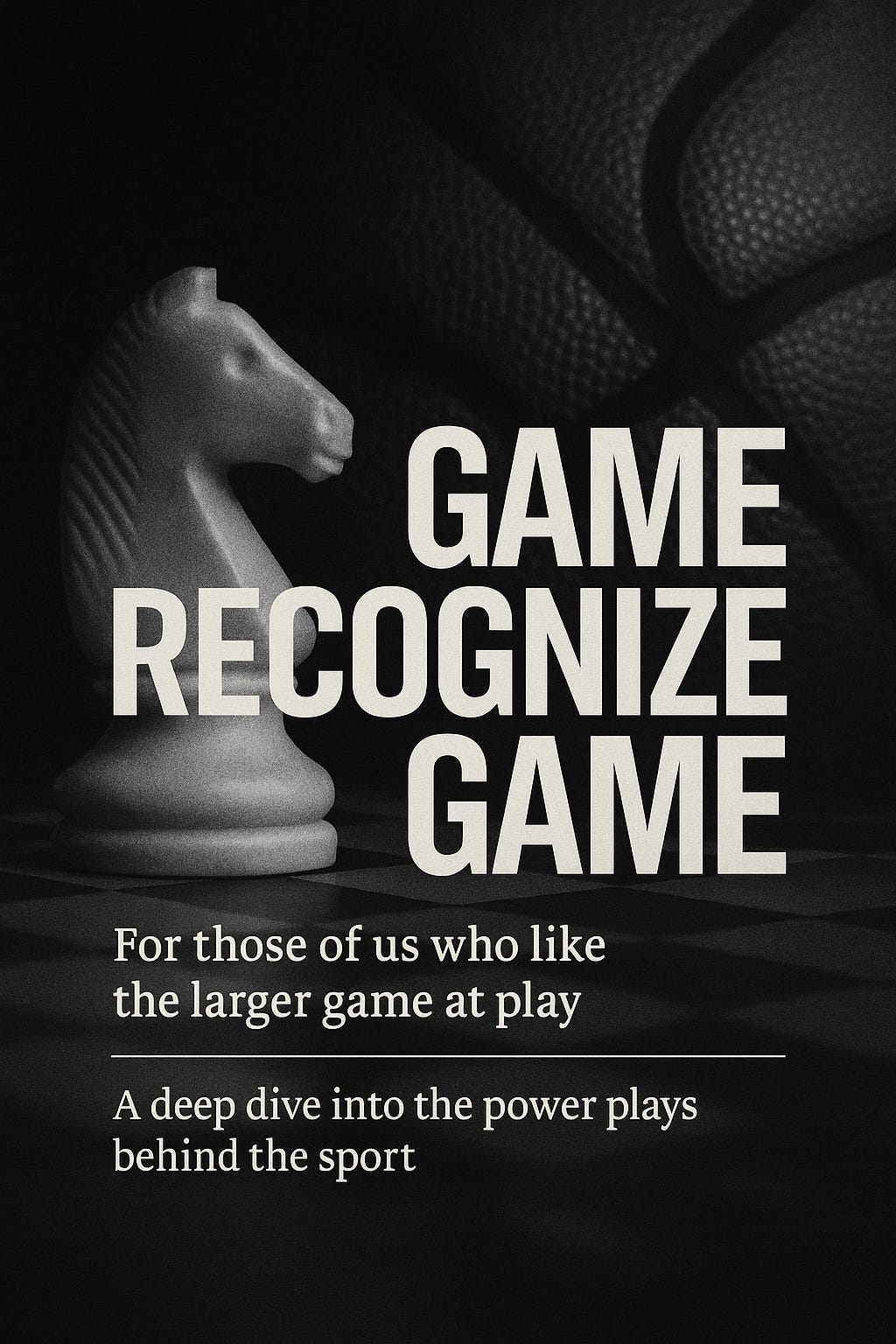Game Recognize Game: Naomi Osaka's Hana Kuma and the Future of Women's Sports
How we learned about Naomi Osaka's partnership with Revolt and why it matters right now
Hana Kuma is Naomi Osaka’s move into one of the most contested arenas in sports today.
Game Recognize Game is a segment for those who like the larger game at play: A deep dive into the power plays behind the sports we love.
Let’s get into today’s topic.
Naomi Osaka’s Hana Kuma
Revolt recently announced a partnership with Naomi Osaka’s media company, Hana Kuma. The announcement was surrounded by controversy, highlighting the stakes of her latest venture.
On the surface, business moves like these are typical for athletes. But launching a media company that centers women’s sports right now is no small feat, especially if Osaka wants Hana Kuma to live up to its mission. In Osaka’s words:
From the beginning, Hana Kuma was built to tell stories that reflect the depth and diversity of athletes’ experiences, especially women whose voices have too often been overlooked.
So, the question is:
What does it mean for Naomi Osaka to build a media platform for women’s sports right now?
This is a brief exploration of that question.
Who is Naomi Osaka?
Naomi Osaka is a four-time Grand Slam tennis champion. As a diasporic figure — Haitian, Japanese, American — her visibility has been politicized from the moment she stepped onto the court. She put mental health at the center of sports conversations, walked away from tournaments to protect her peace, and took flak for choosing motherhood mid-career.
Her 2023 pregnancy sparked doubts about her career, but her comeback made it clear that she was rewriting what it means to be an athlete on her own terms.
Through Hana Kuma, Osaka continues to seize control of the narrative.
What is Hana Kuma?
Hana Kuma launched in 2022 in collaboration with LeBron James’ SpringHill Company, to tell culturally grounded stories and amplify underrepresented voices. Since then, the company has raised funds and spun out as an independent production house.
It’s already made moves in women’s sports: in 2024, Hana Kuma partnered with the LPGA to help female golfers build their brands and gain visibility.
Hana Kuma is about giving women athletes more control over how their stories are told.
What does it mean for Naomi Osaka to build a media platform for women’s sports right now?
What’s the context around the Revolt announcement?
The announcement came as Revolt scrambled to clarify a messy controversy. Hip-hop icon Dame Dash had recently gone viral after falsely claiming he was the new chairman of the company during an interview on The Breakfast Club. His rants during the interview were laced with misogyny and homophobia, on a platform already infamous for its regressive takes.
Revolt quickly disavowed Dash and, in clarifying their actual direction, spotlighted their new partnership with Osaka. The underlying PR message couldn’t have been clearer: reject Dame Dash’s toxic old-guard energy and align with Naomi Osaka’s forward-facing vision.
And that raises the question: What is Hana Kuma really up against?
What’s the larger context for women’s sports?
Women athletes are increasingly carving out their own paths. Serena Williams created Serena Ventures. Angel Reese turned her NIL clout into cultural power. Claressa Shields has been fighting — literally — to carve out visibility for women’s boxing.
But the terrain isn’t even. Tennis has made strides toward equity, but many sports lag far behind. A 2021 study by Purdue University found women’s sports accounted for only about 5.4% of all media coverage. Newer data suggests the share has grown, but still hovers around 15%.
This is the terrain Hana Kuma is entering: a field where women’s sports are still massively undervalued and newly on the rise.
And under attack.
To understand the stakes, we have to look at how women’s sports are circulating in the national conversation right now.
What is the national conversation around women’s sports right now?
Women’s sports have become a political battleground. The Trump administration’s executive order banning transgender women from participating in women’s sports reframed athletics as a proxy war over gender identity and belonging. Analyses show the policy has far-reaching implications, denying opportunities and fueling hostility against trans athletes and the trans community broadly.
We saw it in the context of Revolt’s announcement: Dame Dash’s misogynistic and homophobic rant on The Breakfast Club, a platform notorious for its flagrant transphobia.
Revolt’s pivot.
Osaka’s positioning.
A glimpse of the proxy war unfolding in real time, as the national conversation manifests in Black media spaces.
I can’t help but wonder if Hana Kuma will choose to be daring and truly stand with the most marginalized women in sports, given the very real risks. ABC suspending Jimmy Kimmel’s show because of Trump-appointed FCC pressures, for example, or Karen Attiah’s recent firing from the Washington Post over her content on a Substack just like this one.
Launching Hana Kuma now means stepping into that minefield. Naomi Osaka is staking a claim in one of the most contested arenas in American culture. The question is whether Hana Kuma can hold its ground while the earth shifts beneath it.
Kitty Killer is the creator of Killer Instinct. She is a Caribbean writer, cultural critic, and a Ph.D. in Media Studies, dissecting popular culture through systemic critique. So, that’s Dr. Kitty to you.
Killer Instinct is a cultural dispatch on Black diasporic life and sharp media critique. I host a live Internet radio show called Killer Frequency every Friday at 1pm AST—join me. Support, subscribe, and stay sharp 🗡.


